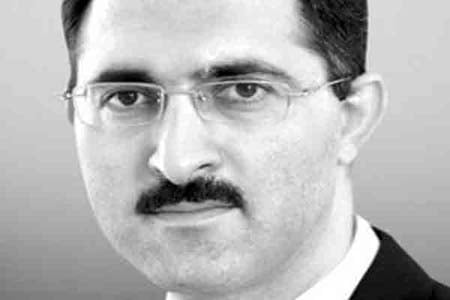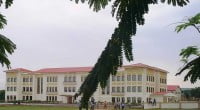Media and education challenge in Afghanistan

Date posted: October 7, 2015
The resurgence of violence, a stubbornly lingering narcotic-financing chain and growing economic difficulties in Afghanistan have put a damper on optimism for the future of the country, yet I believe hope is still strong among the resilient Afghan people and certainly there is no shortage of success stories that will keep them going.
In the fourth series of the Herat Security Dialogue (HSD) last week, held by the Afghan Institute for Strategic Studies (AISS), many who came from Afghanistan’s neighboring and more distant countries echoed these hopes, including me. Speaking on the media, education and culture panel in the Saturday session, I recalled my first experience in Afghanistan back in 2012 when I was struck by the amazing success story that was little-known outside of Afghanistan, a country that is often associated with wars, drugs, refugees and human rights violations.
A short report published in the Turkish media told the audience in my home country that young Afghan students enrolled in Kabul’s international Afghan-Turkish schools brought home 75 medals (12 gold, 24 silver and the rest bronze) at an international Olympiad competition of 1,500 students from 135 countries. It stated that altogether, Turkish-Afghan schools achieved 212 awards (of which 71 were gold) in various highly competitive international science contests. That showed how competitive Afghans can be given the right tools and instruments. Sharing this story with participants at Herat, I made a plea that we need to amplify these success stories in our media networks.
Going back to this wonderful city three years later, I did some investigative journalism and talked to the principals and teachers employed in these schools both in Kabul and Herat and found that this success story is still going on and in fact with far more impressive results achieved by the best and brightest young Afghan students who are enrolled there. Among some 7,000 students (more than 2,000 are girls, by the way) in 20 schools scattered among six provinces, these schools have so far collected 717 awards in international competitions (230 gold, 232 silver and 255 bronze). That is a 238 percent increase in a very short time span.
That shows the critical role of education in the future of the Afghan nation. In the media, we should give broader coverage to education and not shy from publishing success stories so that people are inspired in Afghanistan and beyond. Especially during difficult times when the security situation is getting worse and economic difficulties are growing, people need to hear these stories to continue clinging to hope. If we do that, perhaps we’ll break the vicious cycle of pessimism and realize what former Indian Foreign Minister Salman Khurshid emphasized in his keynote speech at the Herat conference: Education will eradicate poverty by creating more opportunities for young people and finally it will eliminate security concerns and deal with challenges.
The key ingredient is local ownership. At the end of the day, it is up to the Afghan people to make a difference and sustain this positive momentum. Although the Turkish-Afghan schools started out as an investment by Turkish businessmen who were inspired by the teachings of the well-respected Turkish Islamic scholar Fethullah Gülen — who has been a leading voice in advocating the idea of science, critical thinking and interfaith and intercultural dialogue — they are now owned by Afghans. Out of some 1,000 staff members employed in these schools, only one-tenth are Turkish nationals.
We should not forget that investment in education produces more sustainable results than investing in wartime efforts that only deal with the symptoms of fanaticism and radicalization, rather than the root problems. It is estimated that the war in Afghanistan had come to a staggering cost of almost $1 trillion for the US government by the end of 2014. According to US Special Inspector General for Afghan Reconstruction (SIGAR) John Sopko, the money spent in Afghanistan, adjusted for inflation, outweighs the Marshall Plan to reconstruct post-World War II Europe.
The Afghan people question how much of that aid, as well as other funds coming from donors, was in fact spent wisely and whether the scarce resources in the government’s budget were allocated efficiently. The soul-searching is still going on. Again, the media’s role is crucial here in exposing waste and corruption in the government and the private sector. Responsible journalism is paramount for good governance because it scrutinizes the government on behalf of the public interest. That is why transparency in media ownership — a challenging issue that is not unique to Afghanistan — must be addressed as well.
We know from experience that a lack of transparency is typically used to hide political or commercial interests in controlling media companies. The fundamental importance of freedom of information through the media requires transparency in ownership structures so that citizens can form an opinion on the value of the information disseminated by the media. In Turkey, this is a major problem because the pro-government media, financed by kickbacks from companies in exchange for lucrative government contracts and tenders, has a fuzzy picture when it comes to ownership structures and complicates the job of free and independent media.
Both senior journalists in Afghanistan and officials who have considerable knowledge of the pervasive and disruptive penetration of Iranian influence in Afghan society say some 70 percent of the media in the country is controlled today by Iran. Just as proxy battles in terrorism and drug trafficking must end on Afghan soil for locals to continue with reconciliation and nation-building efforts, the proxy media battles must also cease. That is as important as battling radical elements for the fledgling Afghan democracy. Otherwise, a media that works under foreign influence will continue to provoke divisions, spread false rumors, perpetuate prejudices and amplify differences among some 50 diverse groups in Afghan society.
The media’s role also relates to the problem of ignorance, as emphasized during the conference by Ambassador Ronald E. Neumann, president of the American Academy of Diplomacy and former ambassador to Afghanistan. He talked about ignorance and fear on both sides of the aisle when it comes to difficulties in communicating between Muslims and non-Muslims. Some of the blame for that surely goes to the media, which conveys and amplify fears to the respective audience. Hence, we need to review our editorial policies to reflect better understanding and enhance dialogue while striving harder to minimize the fear of others.
While Afghans are looking for ways to rise up to the challenges amid lackluster interest from the international community, the people who love this great nation in the heart of Asia should continue to not only seek success stories but also support and even create new ones in partnership with Afghans.
Source: Today's Zaman , October 05, 2015
Tags: Afghanistan | Education | Hizmet-inspired schools |
























